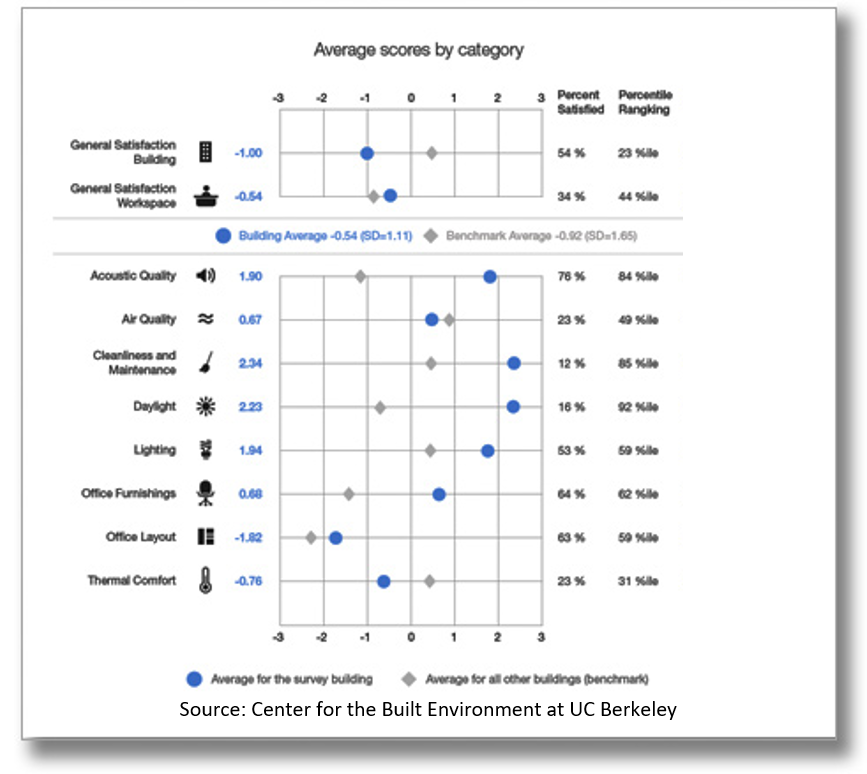Benchmark for Occupant Satisfaction in Commercial Building and Elevated Air Movement and Increased Temperature Setpoint
Occupant surveys allow researchers to objectively gauge which building services and design features are or are not working, and helps to prioritize the steps needed to improve occupant satisfaction and workplace productivity. Using an established web-based survey with a database of more than 100,000 responses from 1000 buildings, the Center for the Built Environment (CBE) has obtained information on characteristics of buildings (e.g. gross and usable area, number of floors, design team, year of constructions, mechanical, lighting and facade features, etc.).
This tool is augmented for obtaining information relevant to Singapore to develop a Singapore database for at least 50 commercial buildings. Developing the database is the necessary first step to achieve these goals. This can become a benchmark that elicits stakeholder commitment, satisfaction, efficiency and performance, and guide policy enhancement (such as Green Mark), design and operation. Moreover, this project compares the Singapore dataset with the one developed in the US.
In a warm and humid climate, increasing the temperature setpoint offers considerable energy benefits with low first costs. Elevated air movement generated by a personally controlled fan can compensate for the negative effects caused by an increased temperature setpoint. Previous SinBerBEST field experiments showed that providing personally controlled fan allows increasing temperature setpoints, up to 29 °C, with neutral or positive consequences on comfort, well-being and cognitive performance with potential overall building energy saving up to 13%.
It was estimated that increasing temperature setpoints from 23 to 26 °C may save around 8% of the total energy use of a commercial building in Singapore. This is a major saving given the low cost of this implementation. This project seeks to test in a real building using real working people the effect of increased temperature setpoints on thermal comfort and productivity.
